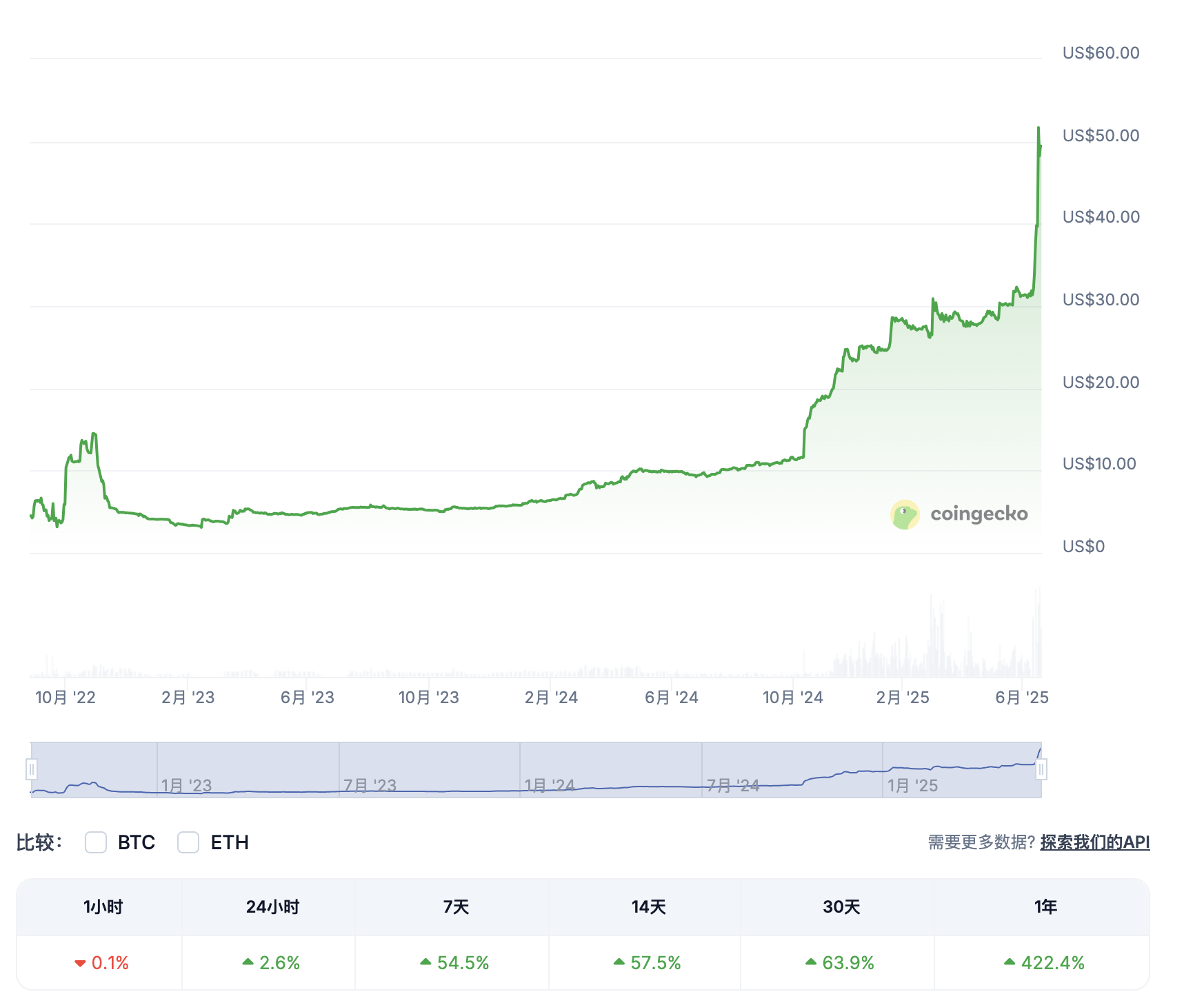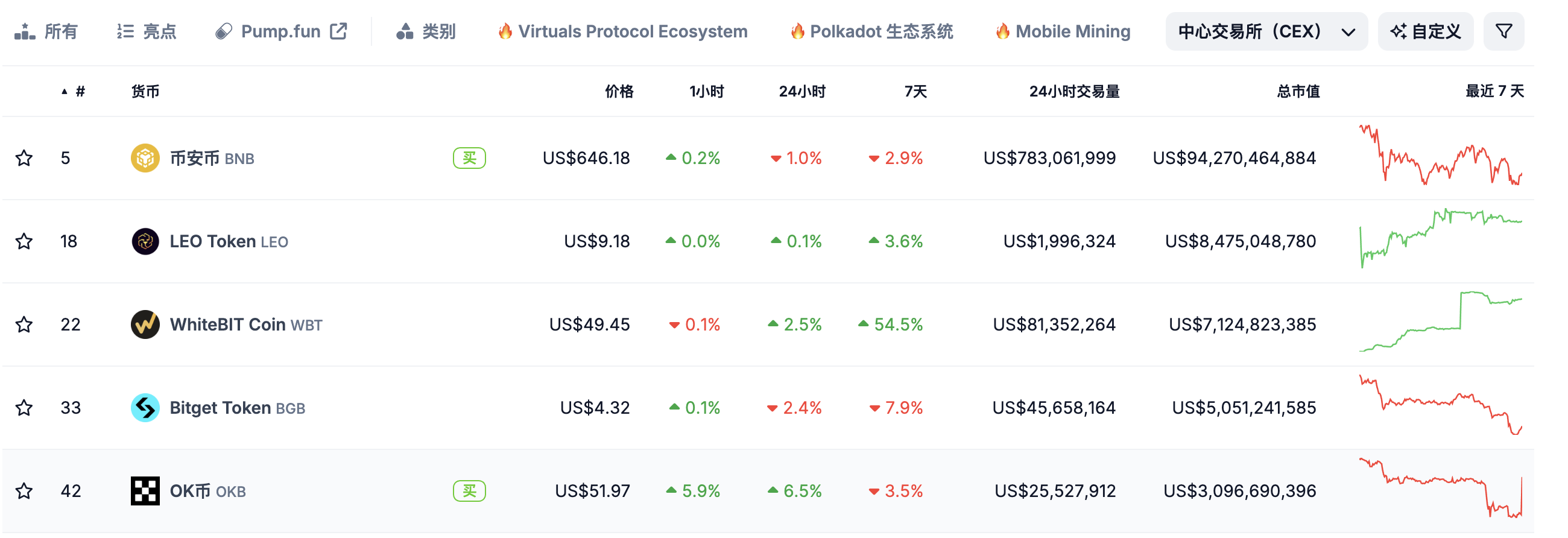Author: Zen, PANews
Recently, WhiteBIT announced that it has signed a three-year strategic cooperation agreement with Italian Serie A giant Juventus, becoming the club's "official cryptocurrency exchange partner" and "shirt sleeve sponsor". Once the cooperation was announced, the price of WhiteBIT's native token WBT soared, rising by more than 30% in 24 hours and setting a record high. The increase in one year exceeded 4 times, and the market value ranked third among exchanges.

This exchange originated in Ukraine, moved to the EU due to the war, and has grown all over the EU. How did it become so popular? Can it become a real dark horse?
'Turning point' in Russia-Ukraine war
WhiteBIT was founded in 2018 and was originally headquartered in Ukraine. It has now registered in many places in the European Union and obtained operating qualifications. Official data shows that the WhiteBIT Group currently provides more than 600 trading pairs, more than 300 crypto assets, and the leverage of derivatives can reach 100 times. According to the group's public data, by the end of 2024, the annual cumulative transaction volume of the WhiteBIT platform will be approximately US$2.7 trillion, an increase of approximately 200% year-on-year, and the total asset size will be "capitalized" at approximately US$38.9 billion.
WhiteBIT claims that its ecosystem has about 30 million active customers, and other reports indicate that its group user base has exceeded 35 million. According to Reuters, WhiteBIT's transaction volume even exceeds that of its established competitors. For example, in 2024, WhiteBIT's annual transaction volume is about 4 times that of Kraken, which has an annual transaction volume of $628 billion.
In the early days of its establishment, WhiteBIT did not actually hold a clear regulatory license and only provided services in Ukraine in the name of its founder. Before the full outbreak of the Russian-Ukrainian conflict in 2022, WhiteBIT's Russian users accounted for 30%. As Russia launched a full-scale invasion, WhiteBIT, which originated in Ukraine, immediately stopped all services to Russian individuals and institutions, including closing the ruble payment gateway and IP-based access blocking.
After Ukraine was mired in the war, WhiteBIT moved its headquarters from Ukraine to Lithuania and established subsidiaries in Spain, Poland, the Czech Republic and other countries to fully connect with the local financial regulatory system. This move can be seen as an active avoidance of geopolitical risks, and indirectly laid the foundation for the future registration and transitional authorization of virtual asset service providers (VASP) in EU member states.
Although the number of users and transaction scale has grown by leaps and bounds, WhiteBIT's revenue performance is average. The annual report of its subsidiary WhiteBIT UAB (Lithuanian limited liability company) shows that the company's operating income in 2024 is about 15.128 million euros, pre-tax profit is about 4.392 million euros, and net profit is about 3.764 million euros. In contrast, Kraken's revenue in 2024 is 1.5 billion US dollars, and its profit reaches 380 million US dollars.
WhiteBIT founder and CEO Volodymyr Nosov revealed that many members of his team are Ukrainian, and for many of them, this war has deep emotions. Therefore, WhiteBIT has been committed to actively supporting Ukraine since the beginning of the full-scale Russian invasion.

WhiteBIT and the Ministry of Foreign Affairs of Ukraine signed a Memorandum of Understanding and Cooperation in 2022, and the two sides jointly created a "Blockchain Humanitarian Aid Channel". Through this cooperation, WhiteBIT launched a 24-hour global aid hotline and intelligent chatbot to provide real-time transfer, information consultation and material allocation services to Ukrainian expatriates and overseas support teams, ensuring that the donation process is traceable, transparent and open.
In addition to providing technical support, WhiteBIT also continues to donate funds during the war. According to official statistics, since February 24, 2022, the group and its founding team have donated more than 11 million US dollars for a number of public welfare projects such as humanitarian relief, procurement of medical supplies, and living subsidies for frontline families.
To some extent, the situation in Ukraine seems to have become a catalyst for WhiteBIT's global expansion. But Nosov is also an ambitious crypto founder, who once said, "WhiteBIT's goal from the beginning was to build a platform that can compete with global giants."
Doubts about the actual controller of the group
According to a public report by the independent Ukrainian non-governmental organization "NON-STOP Ukraine" (NSU), there is controversy over the actual control and source of funds of WhiteBIT. NSU pointed out that WhiteBIT founder and CEO Volodymyr Nosov (V. Nosov) is only the face of the exchange, while the real shareholders are Dmytro Shentsev, a former pro-Russian MP from the Kharkiv region of Ukraine, and his son Mykyta Shentsev.

The NSU report stated that when WhiteBIT was established in 2018, it operated without a formal legal entity, and later evaded regulation by registering multiple shell companies in Estonia, Seychelles and the United Kingdom. Investigations showed that WhiteBIT initially operated through individual businesses and affiliated companies in Ukraine (such as SMART 2019 LLC, ETHOMIC GANS RECORDS LLC, etc.), and then registered companies with low capital in EU countries (such as WhiteBIT Estonia, established in 2019, with a capital of only 12,000 euros). NSU said that these arrangements help transfer funds and prevent being bound by Ukrainian regulations, but they may also be used for illegal transactions and tax evasion.
In addition, NSU also pointed out that WhiteBIT had been investigated by the Ukrainian anti-corruption department NABU, suspected of money laundering, tax evasion, financing terrorism and other crimes. NSU analyzed that Nosov, the white glove founder of WhiteBIT, was only the image representative of "cryptocurrency expert", and its real purpose was to cover up the manipulation of the company's illegal capital flow by politicians such as the Shentsev family. According to NSU, the Shentsev family once held 51% of the shares of WhiteBIT's Estonian branch, and only transferred these shares to Nosov after March 2023.
NSU analysis believes that this operation may be to cover up the company's connection with Russian funds: Dmytro Shentsev, who holds a Russian passport, has been included in Ukraine's list of deprived nationality. It also believes that WhiteBIT still has trading connections with the Russian crypto market, such as the incident in March 2023 when $83 million of Bitcoin flowed to the Russian exchange BTC-e.
The NSU report also disclosed a case of WhiteBIT's suspected involvement in overseas money laundering. NSU pointed out that WhiteBIT was involved in a fund transfer scheme initiated by Four Dragons, a virtual asset exchange in Kyrgyzstan: Four Dragons' victims' funds were dispersed and transferred through "splitting technology", and multiple funds eventually flowed to WhiteBIT accounts, thereby concealing the source of funds. Seven months later, WhiteBIT claimed that it had frozen the relevant funds and cooperated with the investigation.
According to the news released by NSU in March this year, new intelligence showed that Ukrainian law enforcement agencies had listed Nosov, the founder of WhiteBIT, as a suspect and issued an international arrest warrant. In early 2025, there were reports that the parties involved in the case reached a settlement with the investigating party and the case was suspended for a time; it was then reopened for review by the Kyrgyz National Security Council. NSU also stated that it had submitted complaint materials to domestic and foreign regulatory agencies such as the European Union, FATF, IOSCO, and payment networks such as Visa, Mastercard, and SWIFT, demanding a thorough investigation of WhiteBIT's suspicious activities.
It should be pointed out that NSU is a non-governmental investigation organization that calls itself a "voluntary human rights organization" with the mission of fighting corruption and exposing pro-Russian forces. Its report has a clear position and focuses on exposing corruption with a "pro-Russian" background. Currently, NSU is not an official law enforcement agency, and its investigation conclusions have not been tried by the court and are subject to external doubts. Therefore, NSU's accusations should be viewed with caution and can only be regarded as an opinion rather than a proven fact.
The token price has increased more than 4 times in one year. Is sports sponsorship "appearing"?
In the volatile market where altcoins are generally falling, WhiteBIT's token WBT has performed a unique and beautiful scene. Coingecko data shows that its growth rate has reached 421% in the past year and 63% in the month. After the announcement of the cooperation with Juventus on June 16, it rose by 30% in a single day, setting a record high.

Currently, WBT's market value ranks third among exchange tokens, second only to Binance (BNB) and Bitfinex (LEO), and has surpassed Bitget, OKX and Cronos. According to Coingecko statistics, WhiteBIT ranks only 27th in the 24-hour spot trading volume ranking of exchanges, and its daily trading volume is less than one-tenth of Binance, and about half of Bitget and OKX. Taking into account WhiteBIT's trading volume and influence in the market, its token does have a high premium. In addition to the fact that the main trading volume is in its own exchange and the liquidity is controllable, continuous brand cooperation may be the direct driving force of the token price.

Like other leading exchanges, sponsorship of large-scale competitions has become an important marketing tool for them to increase their visibility and brand endorsement.
As early as December 2022, WhiteBIT reached a global partnership with the Spanish La Liga giants FC Barcelona. As a global partner of FC Barcelona, WhiteBIT not only placed advertisements in competition venues and LED billboards, but also jointly launched blockchain online courses ("Game-Changing Tech" blockchain knowledge course) with the Barcelona Innovation Center (BIHUB). In addition, WhiteBIT also announced sponsorship of the Ukrainian national football team and established cooperation with the Turkish football club Trabzonspor. These collaborations are in line with WhiteBIT's market positioning as "Europe's leading exchange" and have increased brand awareness in sporting events such as the Football World Cup.
In the field of e-sports, WhiteBIT has cooperated with the well-known e-sports platform FACEIT to hold global game competitions and bonus activities. In November 2022, WhiteBIT and FACEIT jointly launched the $1 million "Counter-Strike: Global Offensive" CS:GO Community Championship. The competition brought together well-known teams and game celebrities such as NAVI and NiP to participate, and issued USDT bonuses to e-sports players.
WhiteBIT also attracts traders through online trading competitions and user incentives. For example, in May 2025, WhiteBIT held the first "International Crypto Trading Cup" (ICTC 2025) global event, where top traders from all over the world competed on the same stage and demonstrated their real-time trading strategies to the audience through live TV broadcasts. The event was finally broadcast on the LED big screen at the Barcelona vs. Real Madrid derby. In addition, WhiteBIT regularly holds online competitions such as "Trading Time: Barcelona Ticket Challenge", providing rewards such as Barcelona FC tickets to top traders.
For WhiteBIT, commercial sports cooperation and currency price performance are the first step to gaining popularity, but there is still a long way to go to gain a foothold in the highly competitive cryptocurrency exchange track.







